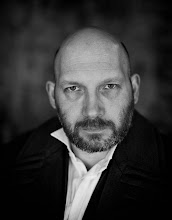Collecting together the early Elric stories of Michael Moorcock, the 2008 Gollancz edition of Elric of Melniboné is a book that no aficionado of sword and sorcery can afford to be without. While later novels and stories added to the saga, these tales –The Dreaming City, While the Gods Laugh, The Stealer of Souls, Kings In Darkness, Caravan of Forgotten Dreams and Stormbringer - comprise the original Elric cycle that turned sword and sorcery on its head when they were first published in the 1960’s.
One of the most influential figures in fantasy fiction, Michael Moorcock’s doomed Prince Elric of Melniboné brought doubt, angst and a seriously Jungian vibe to sword and sorcery, a genre where heroes rarely suffered from any problems more daunting than which monster to kill first. A king who loses a kingdom, rather than a barbarian who usurps one, a physical weakling who relies on drugs and his hell-forged sword for strength, rather than a muscle bound warrior and an intelligent sorcerer rather than a sword-swinging warrior, Elric represented shades of grey in a genre where black and white was the order of the day.
The gift that both Moorcock and Elric brought to fantasy was to give it a cerebral edge whilst, at the same time, refusing to sacrifice the wild imagination and non-stop action that made (and makes) sword and sorcery so much fun. Granted that Robert E. Howard had also given S&S a similar edge with his King Kull stories, but with Moorcock it was a vital component of his fiction.
More than that, there was always a sense of doom in the Elric stories. Rarely did the characters triumph utterly and frequently found that the object of their desire was less than they believed and, in some cases, cost them dearly. In The Dreaming City, for instance, Elric not only destroys his ancestral home but also inadvertently kills his true love and then, if that were not enough, witnesses the slaughter of his allies so that, ultimately, the actions of the character lead to nothing but death and destruction. In “While the Gods Laugh”, the quest for answers leads to more bitter disappointment and in Stormbringer itself, the ultimate fate of the world and the characters calls to mind Ragnarok and the end of all things.
This is not to say, however, that the Elric stories are all doom and gloom. Moorcock’s imagination in these early stories is mercurial and flamboyant and has an almost punk rock ascetic, and incorporating elements from both pulp sensibility and literary experimentation.
Re-reading the original stories, freed from the constraints of later additions, the thing that strikes most about these tales is how wild and fanciful they are as if Moorcock’s prose is struggling to rip itself free from the page and, above all, how unusual a hero Elric really is.
If you’ve never read Elric before, this is the place to start, and even if you are familiar with the character and his world, this edition should still be resting on your shelves, if only to remind you how joyous good sword and sorcery can be.
One of the most influential figures in fantasy fiction, Michael Moorcock’s doomed Prince Elric of Melniboné brought doubt, angst and a seriously Jungian vibe to sword and sorcery, a genre where heroes rarely suffered from any problems more daunting than which monster to kill first. A king who loses a kingdom, rather than a barbarian who usurps one, a physical weakling who relies on drugs and his hell-forged sword for strength, rather than a muscle bound warrior and an intelligent sorcerer rather than a sword-swinging warrior, Elric represented shades of grey in a genre where black and white was the order of the day.
The gift that both Moorcock and Elric brought to fantasy was to give it a cerebral edge whilst, at the same time, refusing to sacrifice the wild imagination and non-stop action that made (and makes) sword and sorcery so much fun. Granted that Robert E. Howard had also given S&S a similar edge with his King Kull stories, but with Moorcock it was a vital component of his fiction.
More than that, there was always a sense of doom in the Elric stories. Rarely did the characters triumph utterly and frequently found that the object of their desire was less than they believed and, in some cases, cost them dearly. In The Dreaming City, for instance, Elric not only destroys his ancestral home but also inadvertently kills his true love and then, if that were not enough, witnesses the slaughter of his allies so that, ultimately, the actions of the character lead to nothing but death and destruction. In “While the Gods Laugh”, the quest for answers leads to more bitter disappointment and in Stormbringer itself, the ultimate fate of the world and the characters calls to mind Ragnarok and the end of all things.
This is not to say, however, that the Elric stories are all doom and gloom. Moorcock’s imagination in these early stories is mercurial and flamboyant and has an almost punk rock ascetic, and incorporating elements from both pulp sensibility and literary experimentation.
Re-reading the original stories, freed from the constraints of later additions, the thing that strikes most about these tales is how wild and fanciful they are as if Moorcock’s prose is struggling to rip itself free from the page and, above all, how unusual a hero Elric really is.
If you’ve never read Elric before, this is the place to start, and even if you are familiar with the character and his world, this edition should still be resting on your shelves, if only to remind you how joyous good sword and sorcery can be.



Thanks for following my blog.
ReplyDeleteCheers.